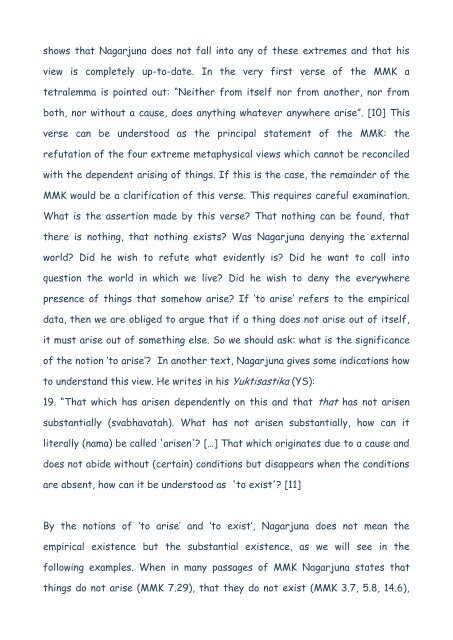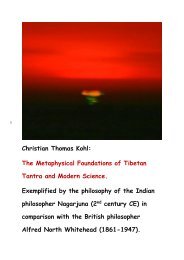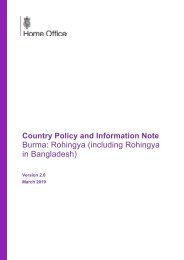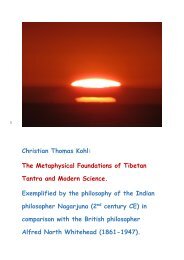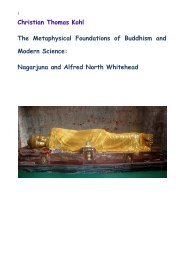The Metaphysical Foundation of Buddhism and Modern Science
You also want an ePaper? Increase the reach of your titles
YUMPU automatically turns print PDFs into web optimized ePapers that Google loves.
shows that Nagarjuna does not fall into any <strong>of</strong> these extremes <strong>and</strong> that his<br />
view is completely up-to-date. In the very first verse <strong>of</strong> the MMK a<br />
tetralemma is pointed out: “Neither from itself nor from another, nor from<br />
both, nor without a cause, does anything whatever anywhere arise”. [10] This<br />
verse can be understood as the principal statement <strong>of</strong> the MMK: the<br />
refutation <strong>of</strong> the four extreme metaphysical views which cannot be reconciled<br />
with the dependent arising <strong>of</strong> things. If this is the case, the remainder <strong>of</strong> the<br />
MMK would be a clarification <strong>of</strong> this verse. This requires careful examination.<br />
What is the assertion made by this verse? That nothing can be found, that<br />
there is nothing, that nothing exists? Was Nagarjuna denying the external<br />
world? Did he wish to refute what evidently is? Did he want to call into<br />
question the world in which we live? Did he wish to deny the everywhere<br />
presence <strong>of</strong> things that somehow arise? If ‘to arise’ refers to the empirical<br />
data, then we are obliged to argue that if a thing does not arise out <strong>of</strong> itself,<br />
it must arise out <strong>of</strong> something else. So we should ask: what is the significance<br />
<strong>of</strong> the notion ‘to arise’? In another text, Nagarjuna gives some indications how<br />
to underst<strong>and</strong> this view. He writes in his Yuktisastika (YS):<br />
19. “That which has arisen dependently on this <strong>and</strong> that that has not arisen<br />
substantially (svabhavatah). What has not arisen substantially, how can it<br />
literally (nama) be called 'arisen'? […] That which originates due to a cause <strong>and</strong><br />
does not abide without (certain) conditions but disappears when the conditions<br />
are absent, how can it be understood as 'to exist'? [11]<br />
By the notions <strong>of</strong> ‘to arise’ <strong>and</strong> ‘to exist’, Nagarjuna does not mean the<br />
empirical existence but the substantial existence, as we will see in the<br />
following examples. When in many passages <strong>of</strong> MMK Nagarjuna states that<br />
things do not arise (MMK 7.29), that they do not exist (MMK 3.7, 5.8, 14.6),


